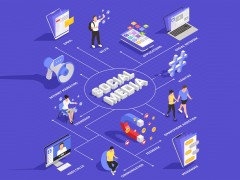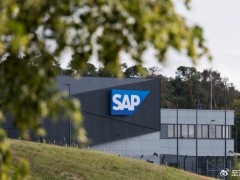难道创始人不怕被超越?其实竞争并不那么可怕 |双语
原文作者:Julian Shapiro 翻译:张亦弛 关键词:竞争,焦虑 导语:创业维艰,竞争残酷,有时资本还不会雪中送炭,难道就应该放弃?其实不然。 为什么你会感到压力 对很多创业者来说,创业是他们一生中所做的最有压力的事。通过身边朋友的调查,我将压力来源归纳为3类:缺乏增长,工作与生活无法保持平

为什么你会感到压力对很多创业者来说,创业是他们一生中所做的最有压力的事。通过身边朋友的调查,我将压力来源归纳为3类:缺乏增长,工作与生活无法保持平衡,以及竞争。竞争是个例外,因为你会认为这基本是一种误区。因此,如果是在一条博客帖子中,那么就会很容易忽略。 曾有不止一个投资人告诉我,发这条帖子给创始人是因为这个方式行之有效,所以期望你读过这个之后也能够睡个好觉。竞争产生焦虑我遇到的每个创业公司都被以下顾虑所困扰: 1、如果竞争的压力贯穿于业务线的始终怎么办?(Facebook就是个很好的例子,其垄断性的竞争优势,让很多初创公司难以望其项背。) 2、如果我不立即建立起自己的产品/特色商品,别人就会先我一步,而我将已然失去这个一生一次的获得先发发布和用户采用的机会 如果我的竞争对手广泛的市场饱和度使人们注册我们的产品变得非常困难,那么获得客户的成本将高至不可持续? 一次又一次,这些担忧使我严重质疑一家初创公司是否大量浪费我的时间。 我不轻易使用“大量”一词。浪费时间的担心来源于对机会成本的极度重视。 所以我们如何克服焦虑?答案是了解一家创业公司的生命周期。初期阶段:你不是独一无二的。在初期阶段,你的市场路径必须不能是“我们是独一无二的。”创业者喜欢这么告诉自己,因为他们凭借这个信息成功的筹集资金并雇佣一个团队。 但这是一个培养焦虑的不良观念模式。相反,你应该将你的创业视为不过是根据特点复制现有竞争对手。即便事实并非如此,告诉你自己你的企业处于创业的初期阶段。 当你抱定这种跟风的心态,你将在被别人在市场上击败之前减少由于不能做到完美而产生的焦虑。作为一个“落后者”也可以很淡定因为落后者有一个优势: 你可以从竞争者获取客户的经验中优先实现增长,而非创新。再将这种获得途径应用于他们的MVP中。 (《牵引力》是理解增长渠道的必读书) 落后者的例子包括:Slack对于HIPChat意味着什么,GITHub对Atlassian,Spotify对Pandora意味着什么。 如果你坚持想要独特而不是抱有跟风心态,你的追求新奇遮盖住了可行性创业的真理:如果你没有用户,无论你有多新奇也没有用。 没有独创的想法,但是有独创的执行。——Luke Wroblewski 此外,新奇在软件世界里只存在于短期。你做的每一件事最终都将被复制——并且被复制的更好。没有什么专有部分。而这解放你的思想上文我们提到:不要认为自己是独一无二的,而这有几点切实价值。不过本文的主要目的还是告诉创业者如何减小压力,所以我们也需要提几点抽象价值。 思考:“压缩时间范围”。将市场竞争的时间跨度进行压缩,你的初创公司永远存在的一个单一时刻。在这个奇点,你每发布一个新功能都能立刻被其他人复制。 换言之,没有一个个体产品是独特的。因此驱动业务的唯一动因是拓宽市场。不仅你,还有竞争对手也会受益。你与竞争者都身处同一赛场,而你并没有被甩出跑道,你应该庆幸。 你最终会与这些公司合作,以提高您的集体产品的总体需求。所以你不妨开始熟悉周围的邻居,与他们打成一片。 从长远来看,他们是你的朋友,而不是你的敌人。 一旦你已经适应了这种思维模式,你不再把初创企业之间的博弈看做是一场零和游戏。 相反,你认为它是一个更轻松的过程,而在此过程中,你充当的是一个有力竞争者的角色。 这时肩上的担子就变得轻松多了。 因为,如果你知道竞争对手在做什么,如果你的团队非常有能力进行产品开发,你所要做的就是在合理的时间内应对外界需求。 你不必再给自己施压,非得要在某一个时间内发布新的产品功能。 当所有竞争对手都转向同一个功能研发时,你就不用再担心季度波动的问题了。 以上提到了如何应对初创公司早期的竞争问题。 这不仅减轻你的焦虑,还能将焦点转移,释放更多的生产积极性,将逐渐渗透到每个员工身上。 但是短期后发生了什么? 当你处在一个事关生死的博弈中,而你的资金却正在枯竭时会发生什么? 这引出了我们讨论:处理中期压力。 中期:专注于留住老客户。 当你害怕竞争时,你实际特别害怕两个东西: 一是减薄边距,二是失去你已有的客户 后者更为重要,因为没有了客户就没法获得其中的利润。既然创业公司发展中期已经获得健康客户,那么这时候如何留存客户更为重要。客户留存率提高了,自然我们因为竞争而失去客户的焦虑就会降低。 思考:如果每个人都使用Facebook或WhatsApp,那么你认Facebook的下一个焦点将是什么?当然是客户留存问题。保留永远是最后一步。 记住用户增长不是一个企业的最终目标——收入增长才是。你需要将用户转化成为付费客户,而前提就是拥有足够的客户留存。从现实中进行考察对大多数初创公司而言,留住老客户远(例如提高客户支持并提升产品黏性)比开发新客户(例如在如花些精力物力在广告和业务开发上)要容易得多。 仅是说说花些精力物力在广告和业务开发上”可 能就已令厂商头疼(字面意思)。你知道一次冒险意味着什么。同时,如果你花些时间搞明白这些道理,后者的效果是立竿见影的,风险率几乎为零。 如果在中期阶段你不聚焦于这两件事,那么你就本末倒置了。入门请参阅《精简分析》《目标网页优化》以及《更新》这几本书。 这是因为聚焦在客户留存的问题上风险小而且容易操作,用户愿意使用你的产品,这类用户可以定性分析,因此你需要做的就是进一步了解用户,解决他们的顾虑。 浓缩为一句谶语: 真正的企业家关心的不是竞争而是用户,他们思考的是深入挖掘而非向外拓展。维系老客户与不惜一切代价求增长相比,维系老客户更为重要,这是因为如果一家初创公司客户流失率低,那么其品牌支持率就越高,这意味着你的客户即使是在竞争对手比你略高一筹的情况下也不会轻易抛弃你。 您的用户群由品牌拥护者组成的百分比越大,您的业务越具有黏性,而你越少因被迫盲目竞争出新而感到压力。 因为当竞争对手改变盈利模式时,只需要如此反应:一、适当的运用技术壁垒,二、及时与客户沟通产品规划。 并不存在困难的市场教育问题; 竞争对手已经替你教育了市场。 你可以坐收渔翁之利。 (是否已经意识到我正在描述苹果的市场通道?) 如果你有一款用户喜爱且依赖的产品,那么用户不会轻易因为竞争对手而轻易离开你。不会在4周,3个月之后离开,没准6个月之后会,前提是你已经完全不能对你变化的市场做出反应。 但几个月是一个很大的回旋余地。 而且,如果你不能应对目前情况,那么不管你是市场的老手还是固执的新手,最终都会趋于死亡。 这是一个关键概念,企业家担心竞争未能实现:创业不会因为盲目而死。他们慢性死亡。 这应该是异常安逸的,因为它意味着你不再必须在你每天早晨一醒来时、整个周末或假期里,处于高警戒状态; 相反,你只需要确保你永远不要把你的头埋在沙子里太久。 以下是我的论点的症结: 要心存感激你还有忙不完的事情要做,创业公司与对手进行博弈时,除非手头与要紧的事情,否则你需要给自己空间平静思考如何享受生活的乐趣 。我们差不多完成了。 剩下的是理解长期维系客户的作用。长期:聚焦于品牌专注于你的品牌是保留的两倍。 它从有形(产品改进)到抽象(品牌亲和力)中获得保留。 我的格言来自《从零到一》——“所有公司从内在文化垄断了他们的品牌。“基本上,Airbnb将永远是唯一的”Airbnb“。Slack将永远是唯一的”Slack” 因此,无论你决定让自己的品牌代表什么,都不是竞争品牌可以从你这里带走的。 他们只能复制你,当他们尝试时他们容易失败,因为用户会觉得完全模仿没有任何新意。 除了提高用户留存,品牌所有权的目标将是磨练,直到你的用户不得不将你和竞争对手进行对比而发现对手的产品十分令人失望。你想让他们感觉他们将会替换身份的一部分:他们将不再是“总穿耐克的家伙”或“告诉每个人去用Slack的女孩”。 你需要你的公司能在对手即使增加了一项很棒的产品性能,你的用户也会在心里默默希望你的产品也能做到同样的事情。你需要记住MailChimp是一个强大的品牌的例子, 从视觉识别到用户体验,该平台已经掌握了市场中的垄断地位。 当强大的竞争对手出现时,你认为有多少MailChimp的用户会在短期内跳船 ? 几乎为零。 你的公司不是独一无二的。 永远不要这么认为。 你只是拓展许多竞争对手参与的市场份额。你的竞争对手是一个活的有机体,将像你一样适应; 它们将总是以某种形式存在。 保留是王道:每一天,争取打破一块市场,你可以打电话到用户家。 家是用户喜欢留下的地方。 家庭不快速成长,因为家庭(员工和用户)不快速成长,但关键 是健康的家庭永远不会消失。 他们存在于天长地久。 品牌效应加强了客户的留存。如果你的产品获得了客户的认同,那么失去你的产品的话也会损害到客户本身的利益。 感谢以上这些结论,不要再让自己在竞争中感到压力。 与创始人的多次谈话中,有一个词的出镜率很高,它就是“竞争”。 而正因他们认为市场竞争太残酷,很多情况下,创始人会不得不放弃一些有价值的项目。这种现象很为常见,因为通常商业人士对“竞争”的认识就是如此。 但实际上,如果能突破以下几个认识,那么竞争则并非看起来那么令人恐惧。1、如果能够满足客户需求,并建立一个良好的合作关系,还能为他们提供良好的服务,那么拥有牢固的客户群则是必然。Y Combinator的联合创始人Jessica Livingston指出,满足用户之所需是成功的一个重要因素。2、用户的想法不尽相同。有些产品在客户看来非常优秀,有些则非常糟糕。不要仅因为用户的质疑声就直接放弃自己的独特性。 3、市场中存在竞争是好事儿。存在竞争意味着你的产品能够吸引更多的潜在客户。因此,你往往不需要花太多时间来教育客户,而是从不同切入点进行市场营销,在巨大的市场竞争中获取更多用户。 4、尽管有些市场已经趋于饱和,但并不意味着此时进入市场就无法站稳脚跟、秒杀对手。邮件营销工具市场已经被Constant Contact,Mailchimp,ListBuilder等厂商垄断,谁还会头脑发热硬闯这片已基本饱和的市场呢?但是现实粉碎了这个观念。Rob Walling于2012年创建了Drip,并证明了这个市场依旧有待开发。 5、想要保持差异化竞争,先在市场细分领域中找到自己的位置。拿Photoshop的图层(layer)来做个类比吧。某个市场则是Photoshop中由不同图层组成的一张图片。做这个类比的目的,是为了确保你跟其他厂商不在同一个图层。从许多方面来看,这种细分可能并不存在任何竞争。 回到Drip这家公司,它所在的电子邮件即服务供应商的生态系统竞争非常激烈,但却处于市场中的另一个图层,难怪Drip这么赚钱! 6、如果你能放平心态,那么你就无敌了。要心中相信你一定会获得客户。如果能与客户保持良好稳定的联系,客户给你报价将极具竞争力。一旦开始与客户交谈,并激发他们的兴趣,你要时刻充满动力。 不过也有一些事情只有你自己才能决定:能否在至少未来三年的创业路上坚持下去吗?只有在战略上藐视对手,战术上重视对手,那么创业中遇到再多的坑也能轻松应对! Handling the stress of competitionJulian Shapiro Why you're stressedFor many founders, starting a startup is the most stressful thing they do in their lifetime. I polled friends to identify the sources of that stress: (1) a lack of growth, (2) work/life balance, and (3) competition. Competition is the outlier because you could argue it's mostly an illusion. It's therefore the easiest one to dispel in a short blog post. I've had more than one VC tell me they send this post to their founders because it's an effective therapy session. So hopefully you'll sleep better after reading this ?The anxiety of competitionEvery startup idea I’ve had has been haunted by these concerns: What if the competition appropriates my entire business into a feature? (Facebook does this to a lot of startups.) If I don’t build my product/feature immediately, someone will before me, and I’ll have lost this once-in-a-lifetime opportunity to get a headstart on press and user adoption. What if my competitors' broad market saturation makes it so difficult to entice people to sign up for my product that customer acquisition costs will be unsustainably high? Time and time again, these concerns make me seriously question whether a startup is a massive waste of my time. I don’t use the word “massive” lightly. My fear of wasting time is rooted in my sharp awareness of opportunity cost. So, how can we overcome this anxiety? By understanding the lifecycle of a startup.Early stage: You're not uniqueIn the early stage, your approach to market must not be “We are unique.” That's what founders love to tell themselves — because that's the message they successfully used to secure funding and hire a team. But it's a toxic mindset that fosters anxiety. Instead, you should think of your startup as merely cloning existing competitors feature by feature. Even if that’s not the case, tell yourself it is in the early stages of your startup. When you embrace this copycat mindset, you reduce the anxiety of having to finish your MVP before someone beats you to market. You also get the calming luxury of being a laggard. Laggards have a vantage point. They can prioritize growth viability (instead of novelty) by examining how existing competitors acquire users then reflecting those acquisition loops in their MVP. (Traction is a must-read book for understanding growth channels.) Examples of laggards include what Slack is to HipChat, what GitHub is to Atlassian, and what Spotify is to Pandora. If you cling to the desire to be unique instead of embracing the copycat mindset, your pursuit of novelty masks the truth of startup viability: if you don't have users, it doesn't matter how novel you are.There are no original ideas. But there are original executions.— Luke WroblewskiPlus, novelty in the software world only exists in the short-term. Everything you do will eventually be copied — and copied better. There is nothing proprietary about bits. ... and that frees your mind We just covered the practical benefits to not thinking you're unique. But this post is about reducing stress, so we need to cover the abstract benefits as well. Consider this: Mentally compress the time horizon of your marketplace's competition into a singular moment that your startup forever exists in. In this singularity, every new feature you release is instantly copied by everyone else. That's what it means to "compress the time horizon." In other words, no individual product is unique. Consequently, the only momentum your business experiences is the broadening of the marketplace itself. This benefits both you and your competitors. You're are all in this together; you’re along for a ride and you should be grateful you have a ticket. You ultimately wind up working with these companies to increase the overall demand for your collective offering. So you might as well get to know your neighbors and get comfortable seeing them at your doorstep every morning. In the long-run, they're your friends, not your foes. Once you’ve adopted this mindset, you cease to look at the startup hustle as a game of one-upping competitors. Instead, you see it as a more relaxed process of maintaining your status as a viable competitor. That’s a much easier burden to bear. Because, if you are perceptive of what your competitors are doing and if you have a competent team working on your product, all you have to do is respond to external demand on a reasonable timeline. You don't have to self-impose artificial time pressure to release novel features. And when all your competitors are veering toward the same feature set, you can stop worrying about quarter-to-quarter fluctuations. This is how you approach early-stage startup competition. It not only lessens your anxiety, but it redirects your focus into something more productive. This trickles down to everyone in your team. But what comes after the short-term? What happens when you're in a cut-throat game of live or die, and your funding is drying up? This brings us to our discussion of handling mid-stage stress.Mid-stage: Focus on retentionWhen you fear competition, you're actually fearing two things in particular: (1) thinning margins and (2) losing the customers you already have. That‘s it. The latter is more important. You can't increase margins on customers you don't have. And since the mid-stage of your startup is the point at which you've acquired healthy customers, let's discuss retention. If we can create a reasonable approach to retention, we can greatly reduce our anxiety of losing customers to competition. Consider this: Once every soul on the planet is either on Facebook or WhatsApp, what's Facebook's next focus? Retention, of course. Retention is always the final step. Remember that user growth is not the ultimate goal of a business — revenue growth is. When your users stick around, you can experiment with new ways to monetize them. So appreciate the importance of retention early in the lifecycle of your startup.Retention reality checkIt is much easier for most startups to improve retention by 5% (e.g. improve customer support and make features more sticky) than it is to increase user adoption by 5% (e.g. spend money on ad buys and spend time on business development). Just saying "ad buy" and "business development" probably makes your stomach churn (no pun intended). You know what a risk they can be. Meanwhile, improving customer support and making your product stickier are very straight-forward if you take the time to educate yourself. And there's near-zero risk in trying it. If you aren't focusing on these two things at the mid-stage, you're mismanaging priorities. For a primer, see Lean Analytics, Landing Page Optimization, and Rework. Not only is a focus on retention less risky, it's also easier: You already have well-defined, observable users who want your product —so the onus is on you to simply talk with them and react to their concerns appropriately. If I were to reduce this advice into a quip, it would be: Effective entrepreneurs aren’t concerned about competition; effective entrepreneurs are concerned about users. They look inward, not outward.The power of retentionRetention is more important than growth-at-all-costs because a startup with low churn is a startup with brand advocates. Brand advocates are lifetime users who don’t jump ship when a competitor introduces a great feature you haven’t implemented yet. The greater the percentage of your userbase that consists of brand advocates, the stickier your business is, and the less you have to stress about competition blindsiding you with something novel. Because when a competitor does release something game-changing, you simply respond with 1) the appropriate engineering resources and 2) open communication with your users about your product roadmap. That’s it. There’s no difficult validation to work through; the competitor already validated demand for you. You can be the laggard who first sees what others did right and wrong. (Have you realized yet that I'm describing Apple's approach to market?) If you have a product that users depend on and love, they won’t disappear the instant a competitor one-ups you. Not even 4 weeks later. Not even 3 months later. Maybe 6+ months later if you’ve utterly failed to respond to your changing market. But several months is a heck of a lot of leeway. And, if you can’t rise to the occasion, then you’re a slow-moving beast who's either the market’s old guard or the stubborn upstart that will succumb to a slow death. And that’s a critical concept that entrepreneurs fearing competition fail to realize: Startups don’t die by being blindsided. They die slow deaths. That should be tremendously comforting, because it means you no longer have to be on high alert when you wake up every morning or throughout your weekends and vacations; instead, you just have to ensure you never bury your head in the sand for too long. Here's the crux of my argument: Appreciating that you always have work to do but never work that you have to do immediately affords you the peace of mind to enjoy life while pursuing the startup hustle. We're almost done. What's left is understanding the power of long-term retention.Long term: Focus on brandTo focus on your brand is to double down on retention. It's taking retention from the tangible (product improvements) to the abstract (brand affinity). My favorite quote from Zero to One is, “All companies inherently have monopolies over their brands.” Essentially, Airbnb will forever be the only “Airbnb.” Slack will forever be the only "Slack." Consequently, whatever you decide to have your brand stand for is not something that competing brands can ever take away from you. They can only copy you, and they will likely fail when they try because users become jaded when they see blatant mimicry. Building off our discussion on retention, the goal with brand ownership is to hone it until you reach a point where your users would feel miserable if they had to deal with your competitor instead. You want them to feel like they would be replacing a part of their identity: They would cease to be "the guy who constantly wears Nike's" or "the girl who tells everyone to use Slack." You need your startup to get to the point where when a competitor adds an amazing feature, your users say, "Damn, that's insanely cool! But... I'm just going to wait until [startup] offers this. Hopefully it's soon, but if they don't, I'll figure out a compromise."What you need to rememberMailChimp is an example of a strong brand. From visual identity to UX, they’ve mastered what it means to be a singular voice in a marketplace. When strong competitors arise, how many of MailChimp’s users do you think are going to jump ship in the short-term? Almost zero. Your company is not unique. Never allow yourself to think that. You’re simply expanding a marketplace that numerous competitors partake in. Your competition is a living organism that will adapt just like you do; they will always exist in some form. Retention is king: Every day, fight to carve out a piece of the market that you can call home. A home is where users love to stay. Homes don’t grow fast because families (employees and users) don’t grow fast, but — crucially — healthy families never fade away. They persist throughout the ages. Brands cement retention: When you're part of someone's identity, it hurts them to lose you. Appreciate these conclusions then don’t stress yourself over competition ever again.
原文作者:Julian Shapiro 翻译:张亦弛 关键词:竞争,焦虑导语:创业维艰,竞争残酷,有时资本还不会雪中送炭,难道就应该放弃?其实不然。
- 暂时没有评论,来说点什么吧







